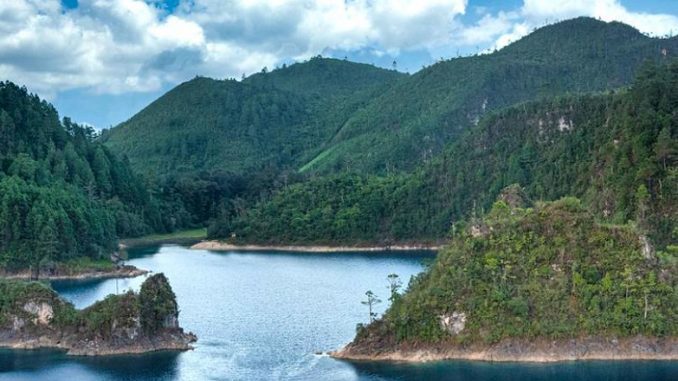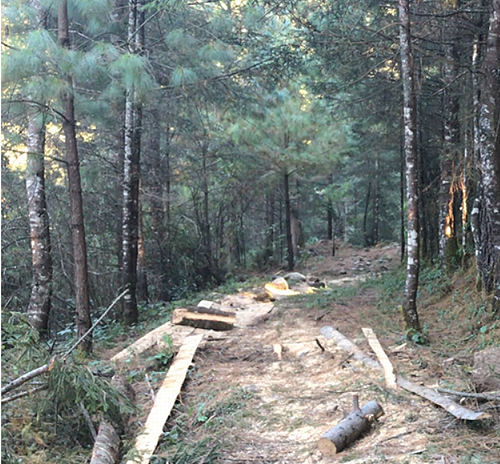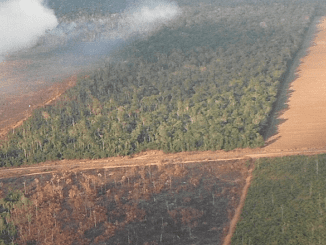
MEXICO CITY, Mexico, November 26, 2021 (ENS) – Forests in about 15 percent of Mexico’s territory are disappearing due to illegal logging carried out by criminal groups, according to Mexico’s Federal Agency of Environmental Protection Profepa, the Procuraduría Federal de Protección al Ambiente.
In a document, Profepa said there are 122 areas of forested land where severe deforestation has occurred due to “the high incidence of illegal logging related to organized crime groups.”
Those 122 areas cover 313,500 square kilometers (121,043 square miles), while Mexico’s total land area is approximately 1.97 million square kilometers (760,621 square miles).
About one-third of the lost forest was located in the 122 areas where severe deforestation has occurred. These areas are located across Mexico from rainforest on the border with Guatemala to woods in the northern border state of Sonora.
The Mexico City newspaper “El Universal,” reported in October that Mexico has lost 662,000 hectares (2,555 square miles) of primary forest since 2002, placing the blame on corruption in the forestry sector, insufficient inspections and vigilance, and the presence of organized crime.
Illegal logging is to blame, according to the sustainable logging advocacy group Reforestamos México (We Reforest Mexico). The group works to stop deforestation, increase sustainable forest management, restore degraded lands and forest areas, and achieve the UN’s 17 Sustainable Development Goals.

Reforestamos Mexico is this year’s recipient of the Xochitla Award, which recognizes environmental achievements, for ensuring more and better forests to promote sustainable development with the participation of all sectors of society.
“Illegal logging is a widespread problem in Mexico,” says Emilio Cruz, one of the organization’s directors.
The reason why illegal logging is so widespread, Cruz explained, is because felling trees illegally is cheaper than legal logging since the illicit loggers avoid paying taxes and don’t pay for wood export permits.
Cruz says that logging is “another business” for crime groups, which have diversified beyond drug trafficking and extortion.
“In Mexico, 24 million cubic meters of wood are used per year. If we take into account that eight million [cubic meters] are produced legally and eight million are imported, this speaks of there being another eight million [cubic meters] of which we don’t know the origin,” he said.
According to the National Forest Commission (Conafor), much of that unidentified wood was illegally logged. The Commission said in a 2019 report that seven million cubic meters of wood processed by sawmills every year originates from illegal logging.
The market value of that wood is above seven billion pesos (US$343.5 million), Conafor said, pointing out how lucrative illegal logging can be.
“Measuring illegal logging is complex, said Xiomara Domínguez, public policy coordinator at Reforestamos Mexico.
“Profepa estimates that it’s 70 percent [of all logging] but they don’t have clear methodology,” she told “El Universal.”
The Mexican government has acknowledged that illegal logging is encouraged by “the weakness of the rule of law.”
“The weakness of the rule of law facilitates clandestine extraction … of raw forest materials, mainly wood for commercial use,” the federal Environment Ministry said in its 2020-24 national forestry plan.
Featured image: Forested hills surround Blue Lake in the Mexico state of Chiapas. August 25, 2016 (Photo by Rod Waddington)
© 2021, Environment News Service. All rights reserved. Content may be quoted only with proper attribution and a direct link to the original article. Full reproduction is prohibited.



